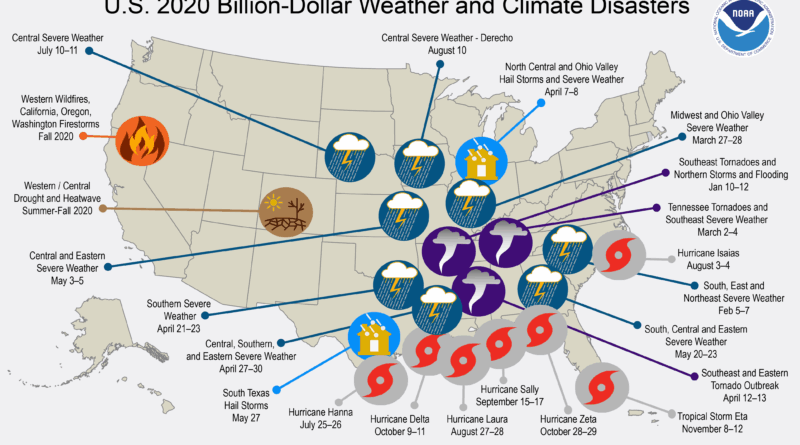Financial Toll of Weather Disasters Expose Pattern of Economic Inequality
In 2021, a total of 27 incidents of weather and climate-related disasters made it to the $1 billion damage mark, second only to the all-time high number of 28 in 2023. This underscores a worrying pattern of escalating financial impact caused by natural disasters.
These natural disasters reveal an often overlooked hazard: their unequal impact. For instance, early this year Los Angeles suffered from a terrible wildfire disaster that claimed at least 30 lives, caused roughly 200,000 to abandon their homes, and resulted in the removal of over 16,000 structures. The causes of this catastrophe were incorrectly attributed to a range of factors.
Unquestionably, the unfair facets of U.S. history, including segregation and redlining, have had a direct effect on the geographical distribution of various communities, with marginalized groups often finding themselves in risk-prone locations.
Existing social and economic disparities also significantly impact a community’s ability to prepare for disasters. Less affluent communities tend to lack resilient infrastructure and resources needed to brace themselves against the force of natural calamities.
Individuals’ personal circumstances play a substantial role in determining the impact of these events, resulting in the disproportionate suffering of communities that are poor, elderly, or living with disabilities.
Due to years of inadequate preparation for such realities, the repercussions have been severe, as showcased by examples like Hurricane Katrina and many others.
A lack of cognizance of these unequal realities in disaster readiness planning has allowed patterns of inequality to thread through each successive natural catastrophe.
Government-funded initiatives like flood control systems, enhancements to stormwater management, and resilient coastal infrastructure investments go a long way in blunting the edge of these calamities.
Neglecting to incorporate risks into disaster mitigation plans is never a feasible course of action, as understanding and planning for these are integral to any effective preparedness strategy.
While affluent communities might have easy access to measures like reinforcing houses or insuring themselves adequately, the destruction of key infrastructure like roads, schools, or hospitals in the face of a disaster can leave even the most prepared struggling.
Community-wide readiness programs may seem more demanding and intricate than personalized measures, but they deliver a more comprehensive solution, benefiting large swathes of the population rather than just those with the financial means to prepare.
History shows that government responses to disasters have often discriminated. Therefore, it’s critical for the federal level to take up the mantle to ensure that disaster management resources are distributed fairly and that every community gets the aid it requires.
The disregard of the factors of vulnerability and accessibility in emergency planning will not foster national unity; instead, it would hinder the governments’ effectiveness in planning for, responding to, and catering to its citizens’ needs.
Federal databases along with alert systems serve as indispensable tools for all states, assisting them in keeping an eye on risks and tracking how the impacts of climate change are affecting disadvantaged communities.
When preparation efforts fall short, communities are often left to fend for themselves initially. Several state offices, like those in California and Louisiana, serve groups that bear the brunt of disasters disproportionately. Despite federal funding cutbacks, these offices continue striving to formulate and execute effective response and recovery plans.
To prevent the recurrence of the patterns of inequality in future disasters, it is crucial for all government levels and communities to join forces and design equal and inclusive disaster mitigation, readiness, response, and recovery strategies.

